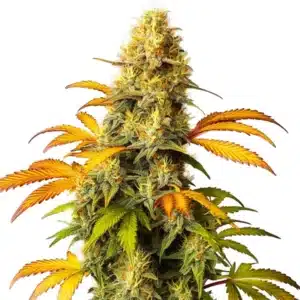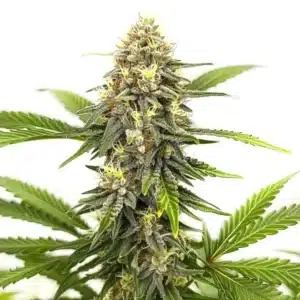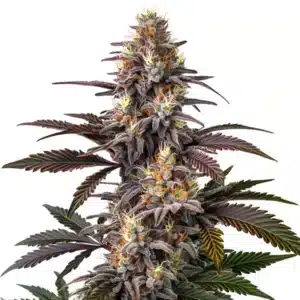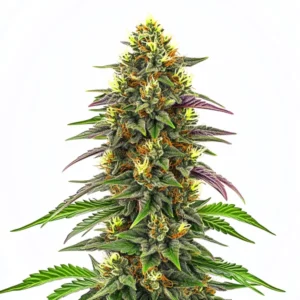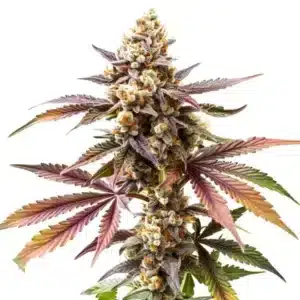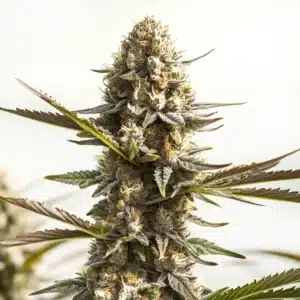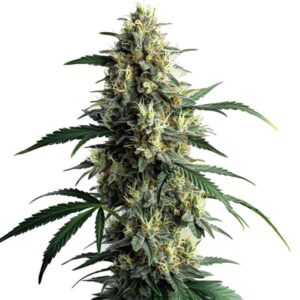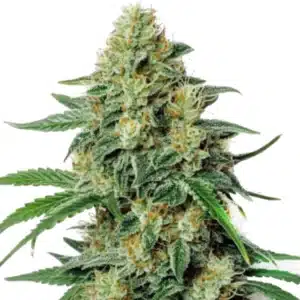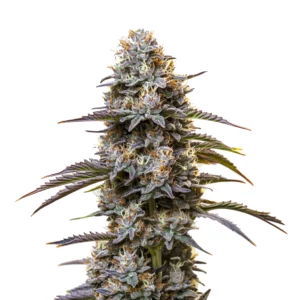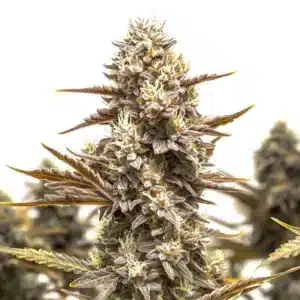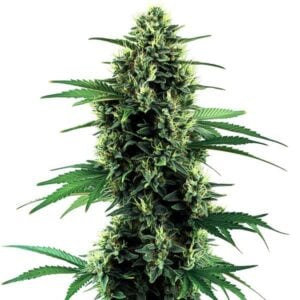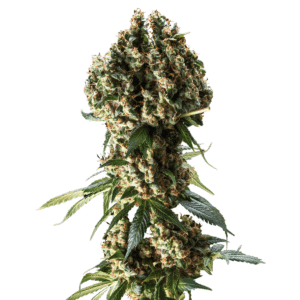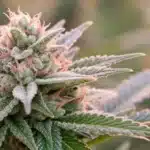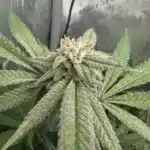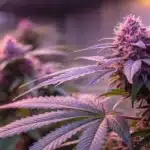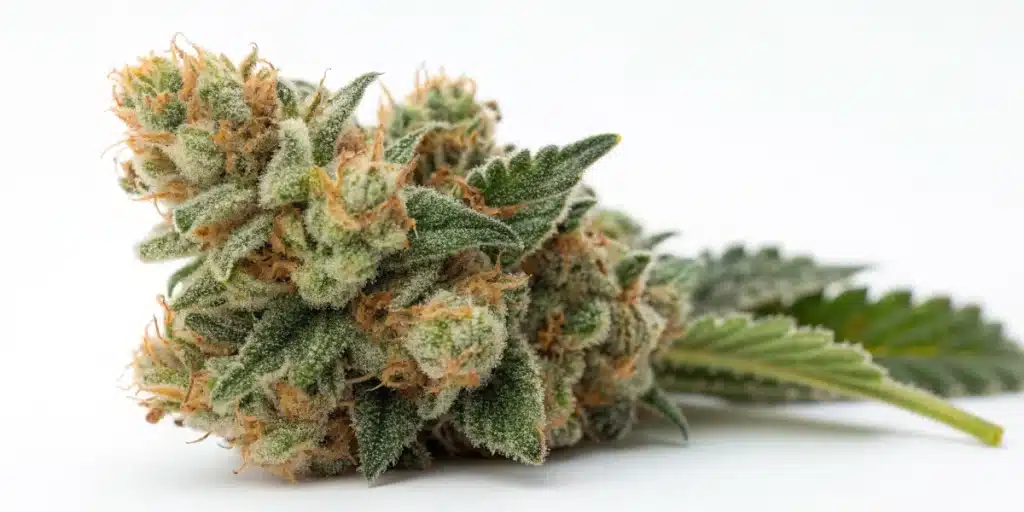
How to Grow California Hash Plant Weed Strain
California Hash Plant Strain Description
California Hash Plant is a 90% Indica / 10% Sativa feminized hybrid combining California Hash Plant with Northern Light. With low THC (8%–12%) and negligible CBD (0.02%), it delivers a deeply relaxing, sedative body high ideal for evening use. Dense, resinous buds emit earthy, spicy, and pine aromas driven by terpenes such as Myrcene, Limonene, Caryophyllene, and Linalool.
This forgiving strain finishes in 8–10 weeks of flowering, reaching about 3.94 ft (1.2 m) tall. Indoor yields average 1.64 oz/ft² (500 g/m²), while outdoor plants can produce 21–22 oz (600–650 g) each. Therapeutically, it helps arthritis, insomnia, and pain via Delta-3-Carene and Linalool’s anti-inflammatory and sedative properties.
Recommended Strains
California Hash Plant
|
|
THC | 8% - 12% (Low) |
|
|
Type | Feminized |
|
|
Yield | High |
|
|
Phenotype | 90% Indica / 10% Sativa |
Afghan Hash Plant Regular
|
|
THC | 18% - 22% (Medium) |
|
|
Type | Regular |
|
|
Yield | Medium |
|
|
Phenotype | 90% Indica / 10% Sativa |
Promos & Deals
Growing Environment
Indoors: Maintain 70–78 °F (21–25 °C) days with a 5 °F drop at night. During veg, keep RH at 60%–65%; reduce to 40%–50% in bloom to concentrate resin and prevent mold.
Outdoors: Choose a sunny, sheltered spot with well-draining soil amended with compost. Ensure six hours of direct light daily. Protect from strong winds and heavy rain with shade cloth or simple covers. In cool climates, a hoop house can extend the season.
Good airflow is essential. Use oscillating fans indoors and space outdoor plants 3 ft apart to reduce humidity pockets and deter pests.
Setting Up Your Grow Space
California Hash Plant Strain Indoor Cultivation
Use a 4×4 ft tent lined with Mylar. Hang full-spectrum LEDs on an 18/6 schedule throughout. Install a carbon-filtered exhaust and intake vent to control odor, temperature, and humidity. Place an oscillating fan at canopy level to strengthen stems and prevent hotspots.
Grow in 5 gal fabric pots filled with a light, airy soil mix (pH 6.0–6.5) amended with perlite. Start directly in final containers to avoid transplant shock. Automate climate controls temperature, humidity, and lighting with digital controllers for consistent conditions over the 8–10 week cycle.
California Hash Plant Strain Outdoor Cultivation
Prepare raised beds or fabric pots with a 2:1 mix of native soil and compost/perlite. Space plants 3–4 ft apart. Stake or cage stems early to support heavy colas.
Water deeply when the top inch of soil dries, then allow slight dry-down to encourage deep roots. Mulch to conserve moisture and suppress weeds. Shield buds from early-season rain with removable covers.
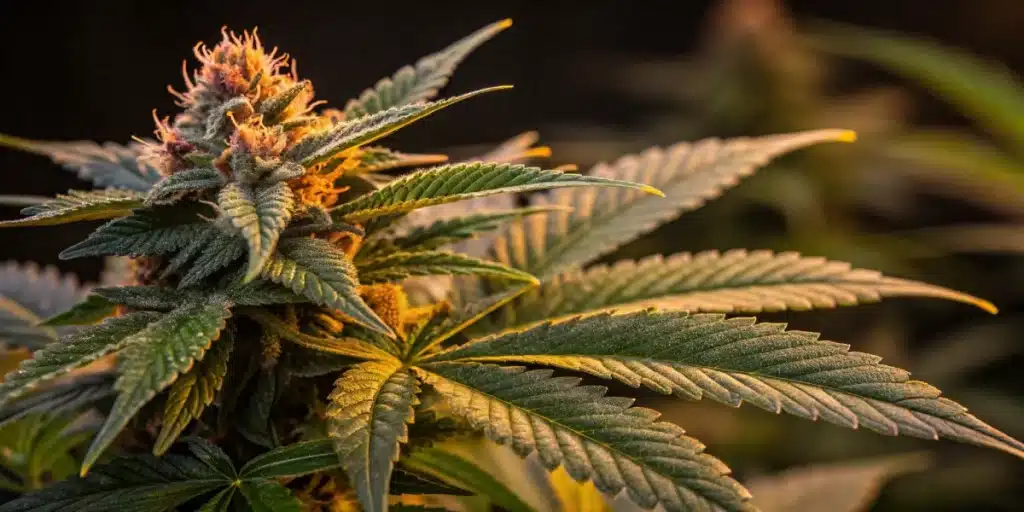
Seed Propagation and Germination
Soak seeds in distilled water for 12 hrs, then transfer to damp paper towels at 75–80 °F (24–27 °C). Within 24–48 hrs, once taproots appear, plant taproot-down ½ in into moistened seed-start mix under a humidity dome.
Keep under 18 hrs of gentle light and maintain 70–75% RH. Remove the dome gradually over 3–4 days to acclimate seedlings to ambient humidity and airflow. Label each pot to track progress and sex plants early.
California Hash Plant Strain Vegetative Phase
Maintain an 18/6 light cycle. Feed a nitrogen-rich formula (N-P-K 3-1-2) at half strength weekly. Apply low-stress training (LST) in weeks 2–3 to create an even canopy and maximize bud sites.
Keep temps at 70–78 °F and RH at 60%–65%. Introduce beneficial microbes or kelp foliar sprays to enhance root health. Prune lower leaves that receive little light to improve airflow and direct energy upward.
California Hash Plant Strain Flowering Phase
Switch to a bloom nutrient high in phosphorus and potassium (N-P-K 1-3-2) when pre-flowers appear. Lower RH to 40%–50% and maintain 65–75 °F to concentrate resin and terpenes.
During weeks 6–8, remove obstructing fan leaves (“lollipopping”) and support colas with soft ties or netting. Begin flushing with pH-balanced water in the final week to improve smoothness.
Fertilization and Nutrition
Veg (weeks 1–4): N-P-K 3-1-2 at half strength. Early bloom (weeks 5–7): N-P-K 1-3-2. Late bloom (weeks 8–10): N-P-K 0-3-3. Supplement calcium & magnesium if deficiency signs appear (yellowing or spotting).
Amend soil at planting with worm castings, bone meal, and kelp meal to feed microbes and boost terpene profiles. A light foliar seaweed spray in early bloom supports bud set without altering pH.
Pest & Disease Control
Inspect daily for spider mites, aphids, thrips. Treat early with neem oil or insecticidal soap, focusing on leaf undersides. Use yellow sticky traps to monitor flying pests.
Maintain airflow, avoid overhead watering in bloom to prevent mildew and bud rot. Quarantine new plants 7 days before adding to the main grow to reduce disease risk.
Harvesting & Curing
Harvest when 70%–80% trichomes are cloudy. Cut branches, trim fan leaves, hang buds upside-down in a dark, ventilated space at 60–70 °F and 50% RH for 7–10 days until stems snap.
Manicure buds, jar loosely in glass containers to 75% capacity. “Burp” jars 5–10 mins daily week 1, then weekly 2–4 weeks. Use humidity packs to maintain 58%–62% RH and preserve aroma.
Post-Harvest: Drying, Curing & Storage
After curing, store jars in a cool (60–65 °F), dark place. For long-term storage, vacuum-seal in Mylar bags with desiccants to limit oxygen. Label jars and check monthly to rebalance humidity.
Troubleshooting Common Issues
Nutrient Deficiencies: Yellow leaves indicate nitrogen shortage; brown tips signal nutrient burn. Flush with pH-balanced water and resume feeding at half strength.
Environmental Stress: Heat stress causes leaf curl; light burn bleaches canopy tops. Raise lights, increase ventilation, keep temps below 80 °F, RH above 40%.
Watering & pH/EC: Overwatering droops plants; underwatering wilts. Water when top inch is dry. Maintain pH 6.0–6.5 and EC 1.2–1.8 mS/cm.
Is California Hash Plant Indica or Sativa?
California Hash Plant is heavily Indica-dominant (90% Indica / 10% Sativa), delivering deep relaxation and sedation with minimal cerebral stimulation ideal for evening or medicinal use.
Advantages & Disadvantages
Advantages: Fast 8–10 wk cycle, high yields, potent sedation for insomnia and pain, beginner-friendly genetics, rich earthy-spicy aroma.
Disadvantages: Low THC may not satisfy heavy consumers, precise humidity control needed, strong sedation limits daytime use.
Why Buy California Hash Plant Strain
Choose California Hash Plant for its reliable high-yield performance, deep indica sedation, and therapeutic relief from arthritis and insomnia. Feminized seeds ensure 100% female plants and consistent results.
Its robust genetics, rapid finish, and classic hash-like aroma make it a must-grow for both novice and experienced cultivators seeking potent, relaxing effects.
California Hash Plant Strain Similar Strains
Northern Lights
Northern Lights, a legendary pure Indica finishing in 7–8 weeks with high resin production and a sweet-spicy aroma. Offers potent relaxation akin to California Hash Plant’s effects.
GDP (Granddaddy Purple)
Granddaddy Purple, a pure Indica finishing in 8–10 weeks with grape and berry aroma. Its powerful body stone and moderate yields mirror California Hash Plant’s therapeutic profile.
Tips for Professionals
Automate environmental controls with digital thermostats, humidistats, and CO₂ supplementation during veg to boost yields. Employ SCROG to maximize canopy light penetration in limited spaces.
Inoculate soil with mycorrhizae at transplant to enhance root health and nutrient uptake. Keep detailed logs of light schedules, feeding, and climate data to refine protocols and optimize cannabinoid and terpene profiles over successive cycles.
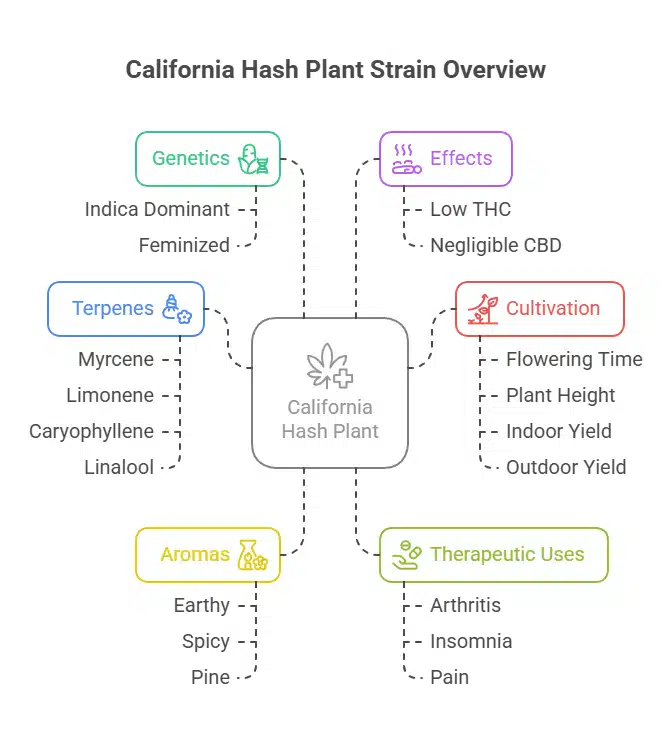
FAQs
How long does California Hash Plant take from seed to harvest?
It completes its full cycle in approximately 10–12 weeks: 2–4 weeks veg plus 8–10 weeks flowering, depending on conditions.
Can it be grown outdoors in cooler regions?
Yes its hardy genetics tolerate mild coolness. Use a hoop house or greenhouse to maintain warmth and protect buds from rain late in the season.
What yields can I expect indoors vs. outdoors?
Indoors: ~1.64 oz/ft² (500 g/m²). Outdoors: 21–22 oz per plant (600–650 g) under full sun with rich soil and proper care.


